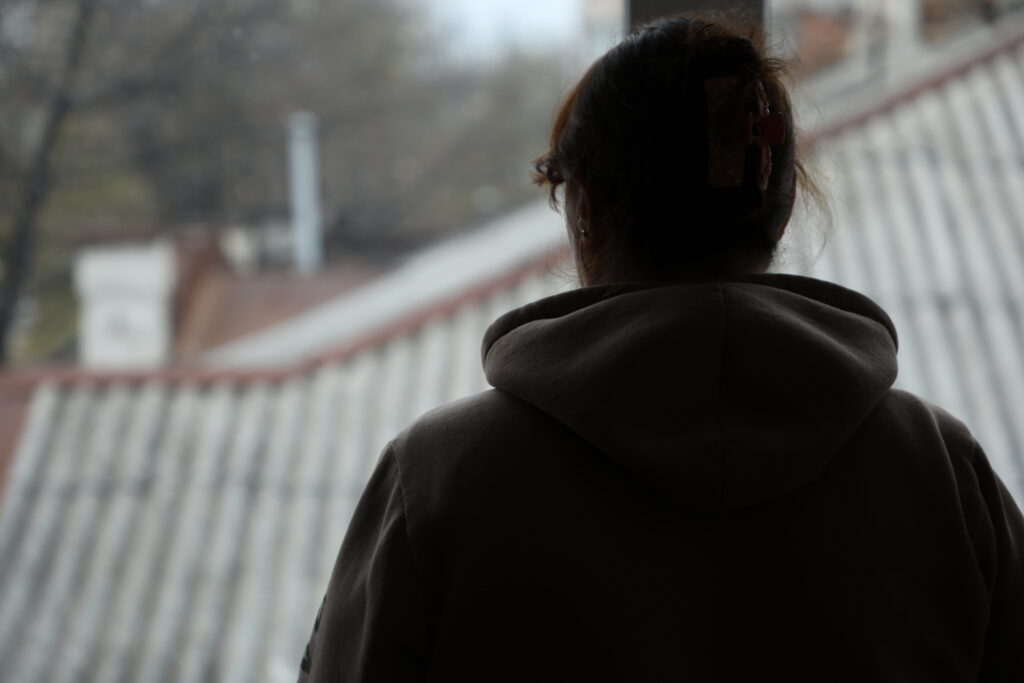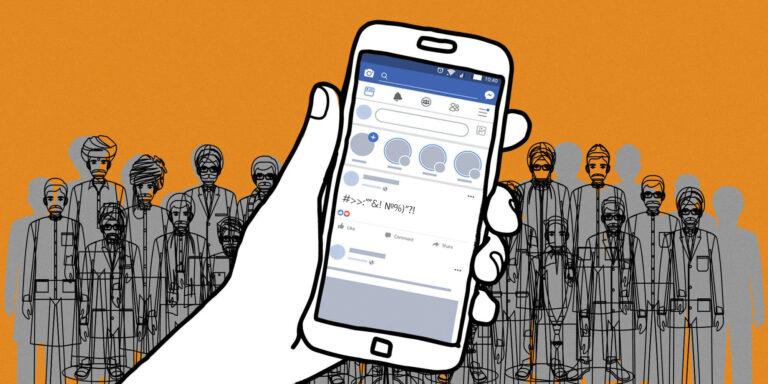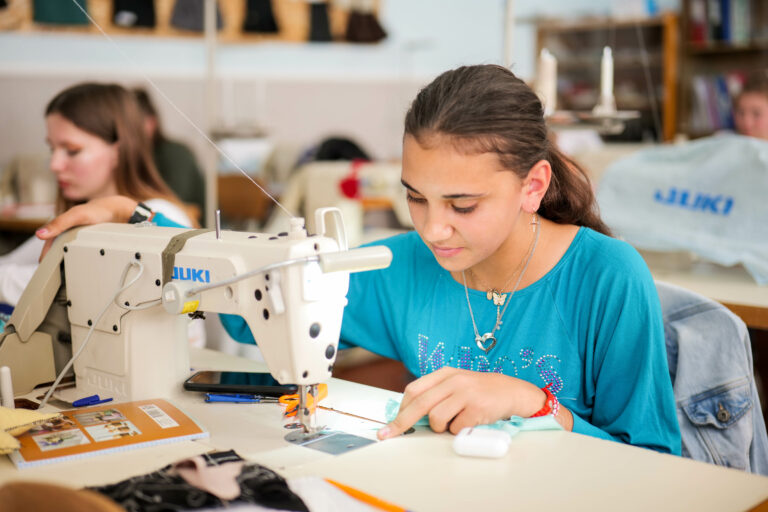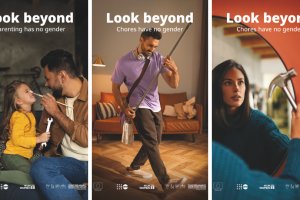
“I’m not afraid of him any more”- 30 years stolen by domestic violence
The first blow came when she was pregnant. The second a week later. Many more followed. She didn’t keep track of them during the 30 years she lived with an abuser. “I spent half of my life not knowing that I have the right to be happy,” says Ioana, not her real name*.
Married too soon
Ioana was 18 years old. She dreamed of moving to the city, to study and build her life on her own. Then she met the quiet and solitary boy who was following her everywhere, telling her he loved her. “I was happy and in love. That’s why I got married. Too soon, I was a child…” she admits.
The first slap slammed her into a wall. It had only been a few months after the wedding and she was pregnant. She didn’t understand how you could hit a person that you love. In her family, the discussions were calm and her parents respected each other, which she did not see in her husband’s family, with whom they moved in as soon as they got married. She wanted to leave, but he apologised. He said that he lost control. “When we move to our own house, we won’t get angry any more. We’ll be happy, we just have to be patient,” he would tell her after each slap.

“Love is gone”
Ioana wasn’t allowed to wear make-up, nor to dress as she liked. She wasn’t allowed to visit her parents and tell them about her husband’s outbursts. She would cover her bruises with toothpaste. “I was ashamed that this was happening to me,” she confesses.
She was a survivor of physical, psychological and sexual violence from her husband. “‘If you don’t want me, I want you. You are my woman and you must do as I say!’ He was forcing me to sleep with him… The love was gone very quickly. Because of this violence I started to hate him,” she says.
One morning, she took her child and ran to her parents. “My mother told me never to go back to him, that he won’t get better… But I didn’t listen to her,” says Ioana. She returned to the husband who made her startle every time he entered the house. She called the police several times. He was fined and then released.
The beatings became even more brutal. “My husband blamed me for everything. I was guilty of provoking him to hit me. I was guilty of running away from home. I was guilty of calling the police and embarrassing him in front of the people from the village, where almost every second woman was beaten,” Ioana remembers. Her mother-in-law was also telling her it was her fault. The woman bragged that she was beaten daily by her husband, but did not complain. “He beat me, but I didn’t die. So don’t be the smartest one here,” the woman scolded Ioana.
Silence
Years passed, but Ioana did not have the courage to leave her home. Where would she go with her children? Who would host her? Even the police couldn’t help her. Her husband used to hit her in a way that wouldn’t leave any marks so she could not report him to the police. They needed clear evidence.

One day, her youngest daughter managed to record him punching her mother. Within hours, a ten-day restraining order was issued against the man. “But he didn’t go anywhere. The law didn’t mean anything to him,” says Ioana. The man was fined and the restraining order was extended by three months. “Then I remembered what it’s like to live in peace,” Ioana confessed.
Police advised her to contact the Women’s Law Centre. The specialists there counselled her and helped her initiate the divorce process.
“I’m not afraid of him any more”
“When I saw the divorce certificate, I couldn’t believe it… I regret not leaving sooner. I didn’t even realise that 30 years had passed with me enduring this silently…” states Ioana.
It’s now two years since Ioana lives in peace. She moved to the city, rented an apartment, and found a job.
At the age of 50 she went to a beauty salon for the first time. She put on make-up, did a manicure and also tattoos to cover the scars left by her ex-husband. “I’m not afraid of him any more. I am strong and I know he can’t do me any harm….” she says.
Ioana urges survivors of domestic violence to contact NGOs and support centres. “I tell them to leave the aggressor right after the first slap. People who beat women are cowards and we shouldn’t allow them to ruin our lives,” adds Ioana.
She enjoys the moments she spends with her children, who she was able to protect. Every day, Ioana learns to be strong and dream with her eyes open, as she hasn’t done since she was 18.
Violence against women and girls is one of the most systematic and widespread violation of human rights in Moldova and throughout the world. Women are the victims of domestic violence more frequently. The results of a regional study on gender norms and stereotypes carried out in the countries of the Eastern Partnership show that in the Republic of Moldova, 23% of women and 18% of men saw their mother being hit by their partner in childhood.
The regional program “Together against gender stereotypes and gender-based violence” aims to combat gender-based violence in all its forms. The dissemination of Ioana’s story is a continuation of the efforts of the European Union, UNFPA and UN Women to combat gender stereotypes and prevent violence against women.
This article was written as part of the “Together against gender stereotypes and gender-based violence” programme, funded by the European Union and implemented by UN Women and UNFPA.
*The character’s name has been changed to protect her identity.
MOST READ
SEE ALSO

No, time is not on Russia‘s side

How to open an art business in Moldova: the experience of Alexandra Mihalaș

Be one step ahead of a hacker: check simple cybersecurity tips!

How to act and move on: strategies for women facing discrimination and online harassment

‘Learning is not a process but a journey’: the example of a school in Orhei
More campaign pages:
Interested in the latest news and opportunities?
This website is managed by the EU-funded Regional Communication Programme for the Eastern Neighbourhood ('EU NEIGHBOURS east’), which complements and supports the communication of the Delegations of the European Union in the Eastern partner countries, and works under the guidance of the European Commission’s Directorate-General for Neighbourhood Policy and Enlargement Negotiations, and the European External Action Service. EU NEIGHBOURS east is implemented by a GOPA PACE-led consortium. It is part of the larger Neighbourhood Communication Programme (2020-2024) for the EU's Eastern and Southern Neighbourhood, which also includes 'EU NEIGHBOURS south’ project that runs the EU Neighbours portal.

The information on this site is subject to a Disclaimer and Protection of personal data. © European Union,








